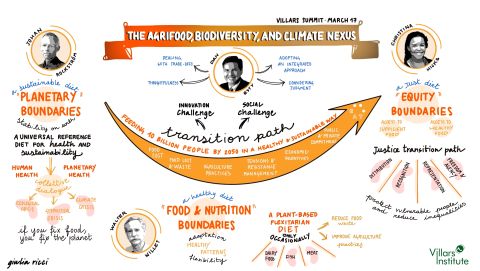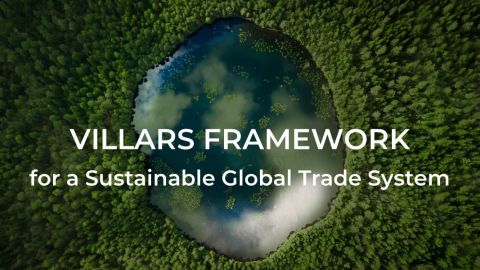Ideas from the Speakers
With wildlife trafficking and resource exploitation accelerating species loss, environmental crime is a growing threat to biodiversity and global sustainability. Experts from the legal, conservation, and business sectors stressed the need for a systemic approach, highlighting its potential impact for economic stability, governance, and environmental resilience.
While progress has been made in many countries (such as in Gabon, Germany, Brazil, Peru, France, and South Africa), one major concern is the lack of high-level political attention to environmental crime on a broader scale. Although people in Brazil recognize the importance of reducing the exploitation of natural resources to benefit the climate, illegal deforestation still makes up 95% of total deforestation in the country. Speakers proposed elevating the issue at international forums, such as the 2025 UN Climate Change Conference (COP 30) in Belém, Brazil, to drive policy and action on a global scale. The experts pointed to technological innovations such as artificial intelligence (AI) and remote sensing as valuable tools to enhance law enforcement capabilities and ensure greater accountability in tackling environmental crimes. The participants suggested that binding global treaties should be established to govern the use of natural resources.
The speakers also called for a shift in the narrative surrounding wildlife crime. Traditionally, discussions have focused on protecting megafauna (larger species), but the speakers stressed the need to connect wildlife crime to larger issues and sectors, including climate change, health (e.g., COVID-19), tourism, Indigenous societies, and environmental degradation. They emphasized that environmental crime should be treated on the same level as organized crime, and that there must be greater risks and smaller returns for groups and individuals as disincentives to engage in these actions. Moreover, some experts underscored the need to address the broader question of economic and business transformation and to include those dependent on these “criminal jobs.” A bioeconomy can help secure the livelihoods of farmers in the Amazon Rainforest, for example.
Additionally, the experts noted that although environmental crimes, such as illegal logging, poaching, and pollution, often manifest at the local level, they are deeply connected to global networks. Organized crime groups, the international demand for wildlife products, and transnational supply chains contribute to the scale and complexity of these issues. The experts stated that combating environmental crime requires a global effort that involves international cooperation, intelligence sharing, and stronger regulatory frameworks to dismantle transnational networks. Furthermore, an expert noted the ineffectiveness of the regulations in place to limit the illegal trade of plastic among countries. A proposed solution is ensuring binding global treaties that are responsible for governing the plastic that enters and exits countries.
Insights from the Audience
An important takeaway from the session is the necessity of holding businesses accountable. While many corporations pledge environmental commitments, the group recognized that voluntary initiatives are insufficient. Instead, legally enforceable frameworks must be established to ensure genuine corporate responsibility and adherence to environmental protection standards.
The session also reinforced the importance of engaging local communities in conservation and law enforcement efforts. The group acknowledged that effective conservation strategies must benefit local populations, ensuring that they have incentives to protect natural resources rather than engage in or turn a blind eye to illegal activities to secure their livelihoods. The consensus was that it is imperative to protect biodiversity alongside Indigenous communities to get more actors on board. Furthermore, to promote behavioral change, empowering underrepresented groups is essential, and countries should conduct risk assessments on environmental crime to show they are mitigating these risks.
The group also discussed the importance of adjusting and curating unique narratives for different communities around the world. These narratives must resonate with communities and businesses and, as systems thinkers, it is crucial to know how to engage and approach audiences. One expert offered the example of women being trained as rangers to tackle the unemployment crisis.
A particularly thought-provoking discussion centered on the rights of nature. With 39 countries now recognizing nature as a legal entity with rights, this legal shift is gaining momentum. The audience debated how this evolving concept could influence legal frameworks, conservation strategies, and public perception of environmental protection.
The session underscored the interconnectedness of environmental crime with broader socioeconomic issues and the need for a multifaceted approach to address it effectively. Law enforcement alone is insufficient; sustainable practices, business models, and community engagement through effective narratives must be at the core when addressing environmental crime around the world.








